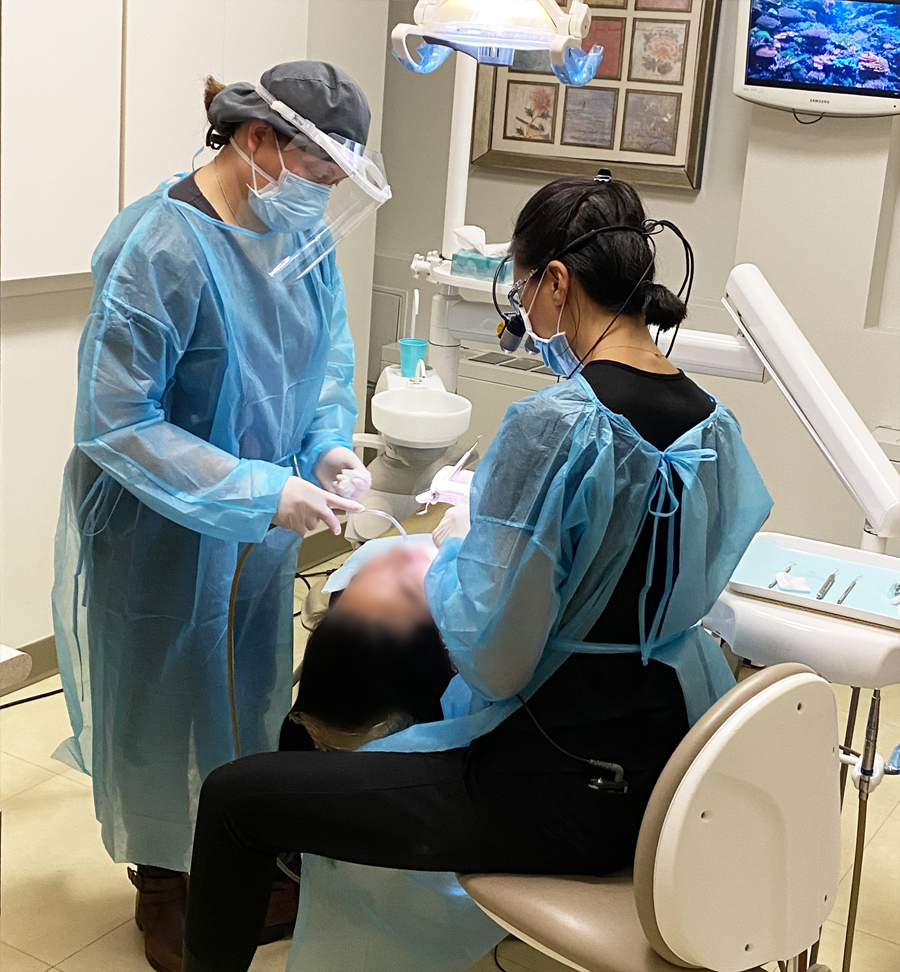Why You Should Select a Neighborhood Dentist Eugene for Personalized Care
A Guide to Usual Dental Problems That Require a Dental expert's Care
Toothaches, for example, can be symptomatic of extreme concerns such as cavities, split teeth, or abscesses, each needing specific interventions like fillings or root canals. Impacted knowledge teeth and jaw problems can introduce substantial pain and problems.
Toothaches
Toothaches are an usual dental problem that can range from mild pain to extreme pain, often indicating an underlying concern that needs specialist attention. This pain can originate from a variety of sources, consisting of dental tooth cavities, broken or fractured teeth, and dental abscesses. Each of these problems postures considerable risks if left without treatment, possibly causing a lot more extreme problems.
Dental cavities, additionally known as caries, are caused by the build-up of plaque that wears down tooth enamel, leading to openings or pits in the impacted teeth. Abscesses are uncomfortable infections at the origin of a tooth or in between a tooth and the gum, typically resulting from extreme degeneration or without treatment cavities.
Effective therapy of toothaches includes attending to the source. This may include fillings for cavities, crowns for cracked teeth, or root canals and prescription antibiotics for abscesses. Very early treatment by a dental specialist can avoid further degeneration and reduce discomfort, making sure ideal dental wellness.
Gum Tissue Illness
Gum tissue condition, a common yet often ignored oral condition, manifests with swelling and infection of the gum tissues and sustaining tissues. This problem largely occurs in two phases: gingivitis and periodontitis. Gingivitis, the milder kind, offers with signs such as red, swollen gums that might hemorrhage easily during brushing or flossing. If left neglected, gingivitis can progress to periodontitis, a much more serious type characterized by the devastation of the supporting bone and connective tissue, eventually bring about tooth loss.
The main root cause of periodontal disease is microbial plaque, a sticky, colorless film that frequently bases on teeth. Poor oral health, smoking, hereditary proneness, and specific clinical conditions, such as diabetic issues, can intensify the risk of establishing gum tissue disease. Routine oral exams are essential for very early detection and administration of this condition.
Treatment for periodontal illness ranges from specialist dental cleaning and scaling to advanced procedures like root planing and periodontal surgical procedure, depending upon the intensity. Keeping excellent oral health methods, consisting of cleaning two times daily, flossing, and using an antiseptic mouth wash, can considerably reduce the threat of gum tissue condition and promote healthier periodontals.
Cavities
Dental caries, additionally known as tooth decays, are an usual dental problem defined by the damage of tooth enamel due to acid-producing germs in the mouth. These germs prosper on sugars and starches from food and drinks, producing acids that slowly wear down the enamel, causing dental caries development.
Early-stage cavities may not show signs and symptoms, but as they advance, they can cause tooth pain, level of sensitivity to cool or hot, visible openings or pits in the teeth, and discoloration. If left untreated, dental caries can penetrate deeper layers of the tooth, potentially resulting in extreme discomfort, infection, and also tooth loss.
Protecting against dental caries involves a mix of good dental health practices and nutritional routines. Routine brushing with fluoride toothpaste, flossing, and regular oral examinations are critical. Dental practitioners might also recommend additional preventative procedures, such as fluoride treatments and dental sealants, to secure teeth from decay.
Therapy for cavities relies on their intensity. Minor dental caries can be attended to with dental fillings, which bring back the tooth's structure. If the decay has actually gotten to the tooth's pulp, a lot more innovative situations may call for crowns or also root canal treatment. Prompt treatment by a dental practitioner is necessary to prevent issues and keep overall oral health.

Impacted Wisdom Teeth
Affected knowledge teeth are a common dental problem that occurs when the third molars, generally referred to as knowledge teeth, fall short to fully emerge or straighten effectively within the mouth. This problem often arises from inadequate space in the jaw or an irregular growth angle of the teeth. Affected knowledge teeth can bring about a variety i loved this of problems, consisting of pain, damage, and infection to surrounding teeth.
When wisdom teeth end up being affected, they are commonly partly appeared or remain entirely under the gum tissue line. This partial eruption can develop a path for germs to get in the periodontals, resulting in infections that materialize as swelling, pain, and also fever. Furthermore, influenced wisdom teeth can exert stress on surrounding teeth, possibly causing crowding or shifting.
A thorough oral evaluation, generally entailing X-rays, is important for diagnosing affected wisdom teeth. Therapy commonly involves surgical removal, executed by an oral specialist. The treatment aims to alleviate discomfort and protect against additional issues, such as his comment is here cysts or damage to surrounding bone frameworks. Post-operative treatment is vital to ensure appropriate healing and decrease the threat of infection. Regular dental check-ups are a good idea to check the problem and maintain dental wellness.
Jaw Conditions
Jaw problems, jointly called temporomandibular joint (TMJ) conditions, include a variety of problems that impact the jaw joint and surrounding muscle mass. These problems can materialize with signs such as discomfort or tenderness in the jaw, trouble eating, a clicking or standing out audio when closing the mouth or opening, and also chronic headaches. TMJ disorders can occur from numerous elements, including arthritis, jaw injury, or habitual behaviors like teeth grinding or jaw clenching.
Diagnosis of TMJ disorders usually includes an extensive evaluation by a dental practitioner, consisting of a physical exam of the jaw, oral X-rays, and sometimes progressed imaging methods like MRI or CT checks to evaluate the joint's condition. Therapy choices vary depending on the severity of the condition. Non-invasive methods such as physical treatment, dental splints, and medications focused on lowering inflammation and pain are usually first-line therapies. In more severe situations, medical interventions may be required eugene dentist to correct architectural concerns within the joint.
Very early treatment by a dental expert is vital to stop the development of TMJ conditions and to maintain overall oral health. Clients experiencing relentless jaw pain or dysfunction ought to look for timely assessment and therapy.
Verdict
Preserving dental health requires prompt specialist treatment to attend to usual oral problems. Toothaches typically show underlying problems such as tooth cavities, cracked teeth, or abscesses, calling for timely treatment. Gum condition, from gingivitis to periodontitis, demands regular oral examinations and cleanings to stop progression. Influenced knowledge teeth and jaw disorders also call for expert interest to relieve discomfort and protect against more issues. Routine oral gos to are vital for identifying and treating these conditions, making certain overall oral health and health.
Oral tooth cavities, additionally known as cavities, are created by the buildup of plaque that deteriorates tooth enamel, leading to openings or pits in the affected teeth. Abscesses are unpleasant infections at the root of a tooth or in between a tooth and the gum tissue, commonly resulting from severe decay or untreated cavities.

Additionally, influenced knowledge teeth can apply stress on bordering teeth, possibly triggering crowding or shifting.